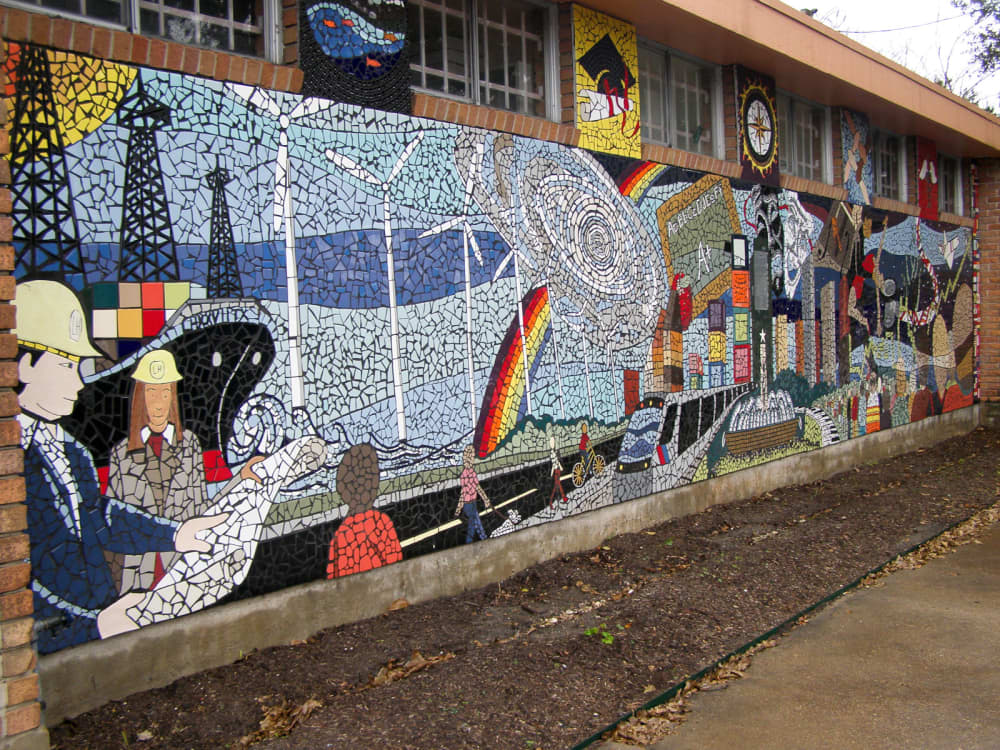The CultureMap Interview
Annise Parker embraces city's arts, but warns of austere times ahead
 Annise Parker took time out from packing for her move to the mayor's office tovisit with CultureMap about her vision for the Houston arts scene.
Annise Parker took time out from packing for her move to the mayor's office tovisit with CultureMap about her vision for the Houston arts scene. Parker is completing her second term on the board of the Holocaust Museum, anindication of her support for the arts, she said. She hopes to tout the city'sdynamic arts scene as a tourist destination.
Parker is completing her second term on the board of the Holocaust Museum, anindication of her support for the arts, she said. She hopes to tout the city'sdynamic arts scene as a tourist destination. Parker does not favor a new home for the Houston Symphony, which plays at JonesHall (interior shown in photo). "I can't put any general fund dollars in museumsand we really shouldn't be spending general fund dollars on new stadiums," shesaid.Greater Houston Convention & Visitors Bureau
Parker does not favor a new home for the Houston Symphony, which plays at JonesHall (interior shown in photo). "I can't put any general fund dollars in museumsand we really shouldn't be spending general fund dollars on new stadiums," shesaid.Greater Houston Convention & Visitors Bureau Parker plans to encourage businesses to incorporate public art into theirprojects. A mosaic mural created by artist Reggie Adams graces the officebuilding in Montrose that she owns with partner, Kathy Hubbard.Photo by Barbara Kuntz
Parker plans to encourage businesses to incorporate public art into theirprojects. A mosaic mural created by artist Reggie Adams graces the officebuilding in Montrose that she owns with partner, Kathy Hubbard.Photo by Barbara Kuntz
It was an unfortunate choice of words that had then-mayoral candidate Annise Parker back-peddling to explain her view of museums and stadiums. What came across in a campaign ad as a not-so-friendly indictment of public spending in those arenas was, Parker said on Monday, "not wordsmithed quite the way it should have been."
Parker sat down with CultureMap to discuss in detail, for the first time, her view of the arts and the role they will play during her upcoming tenure as head of the nation's fourth largest city, one that is widely recognized for its rich cultural resources.
"I believe in museums, art museums, culture museums," she said, addressing the controversy. "It was general fund dollars from the city of Houston (she was referring to) . . . and in a tight economy, it's all about setting priorities. At the very same time I'm saying I can't put any general fund dollars in museums and that we really shouldn't be spending general fund dollars on new stadiums, I also said I can't put any more money (into) the police (department). We've got to figure out a better way to do what we're doing."
When she is sworn in on Jan. 4, Parker will be the most culturally-astute mayor to hold office here in recent history. She served two terms on the board of the Contemporary Arts Museum Houston and is completing her second term on the board of the Holocaust Museum Houston.
Before she was first elected to City Council in 1997, Parker and her life partner Kathy Hubbard held season tickets to Houston Ballet. They continue to be avid fans of Dance Salad. While dance is their mutually favorite performing art (Hubbard has a penchant for opera), they both enjoy poetry and spoken-word performances as well. Parker, in fact, was a contest winner some years back in the Houston Poetry Fest.
"On my campaign Web site, there was a strong statement in support of the arts. I was very clear about it," she said. "And I wouldn't have given my personal commitment to the Contemporary Arts Museum if it wasn't important."
Parker sponsored the now decade-old Percent for Art ordinance, which requires that 1.75 percent of construction budgets for certain city buildings be dedicated to artistically enriching the building site. She also was instrumental in increasing the amount of Hotel, Motel and Occupancy Tax (HOT) funds that goes to the arts. That figure is down due to reduced tourism. Falling city tax revenues will have an impact as well, she said. "This is going to be a couple of austere budget years."
That outlook does not however temper Parker's enthusiasm for the city's dynamic arts scene. She considers Houston an international arts city and wants to move that up a notch to "arts destination." She pointed to the Art Car Parade, for example, as "one of the coolest things on the planet," a draw that should be marketed not only nationally but also internationally.
Parker's commitment to enriching the city's artistic landscape extends to Montrose Boulevard, where she and Hubbard own the office building housing Hubbard Financial Services. The structure is embellished with a Leadership Houston-commissioned mosaic mural, by artist Reginald Adams, that has gained much attention for its colorful depiction of Houston. Parker and Hubbard volunteered the space and a public art project was born. Parker hopes to inspire more of the same.
"I really want to challenge more property owners, business owners to open themselves up to the idea of public displays of art," she said. "Montrose Boulevard is the corridor into the arts community, let's put public art out there."
Parker's enthusiastic support for this whimsical concept belies the seriousness with which she is approaching her upcoming responsibilities and the weightier role of the arts in Houston.
"My priorities are going to be the basics of government -- police and fire and trash pick-up and all of those things," she said. "But I have a personal passion for the arts and I want to weave that into everything that we do."
With those broader priorities and budget constraints, there are sure to be disappointments in the cultural arena. Take, for example, the Houston Symphony's dreams of a new world-class performance center. "Are we going to build a brand new facility? It's sort of like the museum/stadium comment. No."
"Clearly, if we are going to support our arts groups, then we're going to have to support the venues in which they operate," she said. "And they deserve to have a certain level of amenities in those venues. But a lot of what we spend on them is HOT tax funds. And the funding for things like the Houston Arts Alliance and so forth is going down because our tourism revenue is going down and so is the funding on the city side."
The Houston Arts Alliance has been another flash point in the arts community with public controversy raised when Channel 13 investigative reporter Wayne Dolcefino challenged the agency's fiscal responsibility and its artistic sensibilities or lack thereof. At the same time that Dolcefino was taking on HAA publicly, Parker in her role as city controller was investigating its record keeping. Today, she says HAA's books and public accountability are in order.
However, she is not completely pleased with the direction taken by HAA and how the Percent for Art ordinance mandate has evolved. Parker's vision for the monies raised was to have unexpected art in public spaces at little additional cost. The original thinking was to have thoughtful design of buildings that incorporated artistic elements and enhancements.
"Where it's gone wrong, in my opinion," she said, "is that now we're in the mind set that every new public building has to have a sculpture in it. Or we're building a fire station and we need a stained glass window in the fire station."
While the arts was the focus of the interview, Parker wanted to address the other part of her comment — regarding sports stadiums. She said it's not that she doesn't want to see a new stadium for the Houston Dynamo and she likes the location on the east side of downtown Houston. But . . .
"Mayor White will say that we haven't spent any tax dollars. It's not actually true. We create tax increment reinvestment zones which kind of lock in tax dollars for infrastructure," she said. "It's still tax dollars that if those charges weren't there, I could spend on anything in the city. And right now the city of Houston has committed $25 million already to that Dynamo stadium. I could hire a lot of police cadets for $25 million.
"And our tradition is that you don't go in and unwind a deal that the current mayor has constructed, simply because it would make it very hard to do business in the future. But that's a lot of public tax dollars to tie up for a stadium."
See Wayne Dolcefino's investigative report here:
